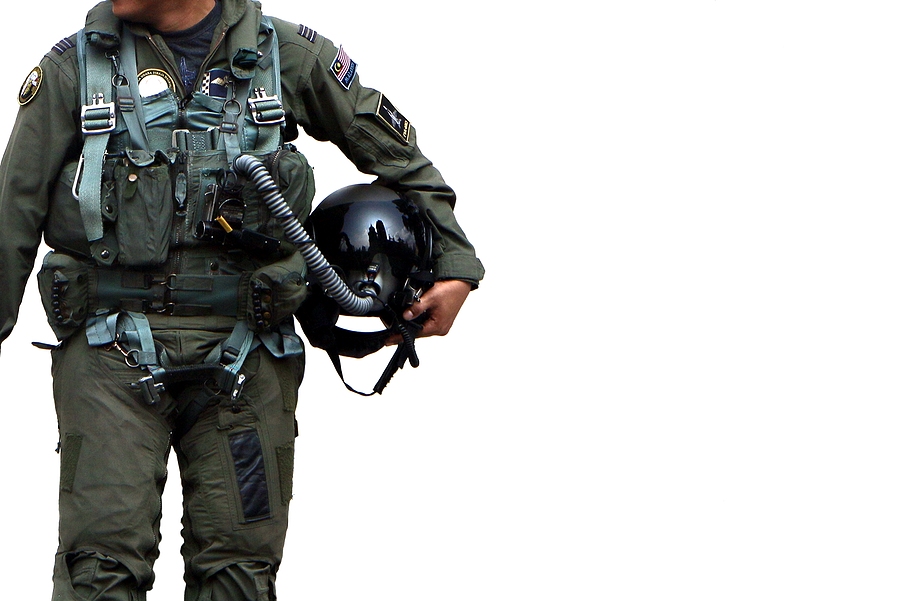For military aviators transitioning to civilian life, applying for VA disability compensation while maintaining an FAA medical certificate can feel like walking a tightrope. One wrong step, such as an ill-advised C&P exam or a carelessly worded diagnosis, can jeopardize the FAA medical you’ve worked hard to protect. Moreover, a misstep can delay your flying career, result in a costly special issuance process, or, in worst-case scenarios, ground you permanently.
That’s where Wingman Med’s VA FAA Service becomes essential. Unlike traditional VA claim support services that focus solely on maximizing disability ratings, we focus on accurately documenting your legitimate disabilities while simultaneously preparing you to disclose the same conditions to the FAA appropriately. Our process was designed by aviation medicine experts who understand the critical intersection between FAA medical regulations and VA disability benefits.
The Problem with the Standard VA Path
Most VA claims are adjudicated with heavy reliance on Compensation & Pension (C&P) exams. These are performed by VA-contracted providers who rarely have experience with military aviation, and almost never with FAA regulations. As a result, many pilots unknowingly put their careers at risk by attending these exams.
The problem? A single inaccurate or vague entry in a C&P report can result in a disability rating that demands further scrutiny by the FAA. Diagnoses like “recurrent depression,” “memory problems,” or “syncope” may be overdiagnosed or mischaracterized. Even if you’re asymptomatic or medically stable, these notations can lead to lengthy FAA delays, deferrals, or denials when it comes time to renew your Class I or Class II medical.
Attention to Detail and Thorough Documentation
The cornerstone of Wingman Med’s VA FAA Service is tight control over the content that enters your VA file. This is done by completely bypassing the VA’s internal C&P examination system to make sure that what you claim and how your evaluation is documented fully captures the reality of your situation.
By building the claim around Disability Questionnaires (DBQs) and supporting medical records, without allowing uncontrolled inputs from C&P examiners, we eliminate the risk of problematic VA documentation that could haunt you during future FAA medical reviews.
Our article, “Why VA C&P Exams Are Risky for Pilots”, outlines this in more detail, providing examples of how seemingly minor wording in a VA file has grounded aviators or triggered FAA re-evaluations. This is not theoretical—it happens more than most pilots realize.
Documentation First, Filing Second
One of the core principles behind the VA FAA Service is strategic timing. Rather than rush claims to the VA, Wingman Med instructs clients to gather all critical records before a single form is filed. This includes:
- Military service treatment records
- Separation Health Assessments
- Private medical documentation
- Completed DBQs with pilot-sensitive wording
This disciplined approach prevents unnecessary development letters from the VA, avoids delays, and removes the need for follow-up C&P exams. Once the file is complete, the team prepares a clean and accurate claim that minimizes unnecessary attention from the FAA.
Built for Pilots: One Medical Cycle, Done Right
1. Client Intake & Record Review
It all begins with client intake. Once onboarded, you’ll submit your available medical records—military, private, and otherwise—so our team can start the review process. This includes identifying diagnoses that may trigger FAA concerns, addressing gaps in documentation, and outlining the safest and most effective course of action forward.
2. VA Recommendations, FAA Action Plan & the Wingman Med Disability Questionnaire
Next, you’ll receive personalized VA Recommendations and a detailed FAA Action Plan tailored to your unique medical history. These documents lay out the strategic path for pursuing your VA claim while maintaining alignment with FAA requirements.
Then comes one of the most powerful tools in our process: the Wingman Med Disability Questionnaire. Unlike generic forms you might expect, this custom-built questionnaire is designed by our VA Claims Specialist to extract high-fidelity, claim-relevant details about your conditions. It guides you to provide precise, usable information—even for hard-to-articulate or intermittent symptoms.
What sets it apart is the interactive guidance provided throughout the process. Instead of dropping a form in your lap and leaving you to figure it out, we explain what each question is really asking—and why it matters.
Clients consistently tell us that this step alone makes them feel confident that they’re providing the correct information in the right way.
3. DBQ Preparation
Once we have your responses, our team drafts your Disability Benefit Questionnaires (DBQs). These forms are the backbone of your VA claim and must be completed carefully to support your service connection and disability level. We ensure every word you’ve provided is purposeful and consistent with what the VA expects to see.
4. Client Review
Before anything is submitted, you’ll review the entire DBQ package. This gives you the chance to ask questions, clarify anything that seems off, and ensure that the documentation aligns with your known medical history.
Disability Physical Evaluation
Once we’ve captured all of the historical information to support your disability claim, you’ll need to undergo a face-to-face disability evaluation with a licensed clinician to review your DBQs and perform a detailed physical examination. You can use your own Primary Care Manager or another appropriately qualified medical provider. However, suppose your doctors are unfamiliar with the requirements of performing this kind of assessment. In that case, you can also choose to schedule your disability evaluation by clicking on one of the links below.
- Dr. Daniel Monlux in San Diego
- Dr. Thomas Holcombe in Houston
- Dr. Nicole Maksymiw in Monroe, Connecticut
These physicians are all familiar with our process and experienced with VA and FAA documentation standards.
6. Final Claim Submission as a Fully Developed Claim
Once the review is complete and the DBQs are signed, we prepare and guide you through the submission of your VA claim as a Fully Developed Claim (FDC). A well-prepared FDC avoids the requirement to attend a VA-contracted compensation and pension exam, offers a faster track for disability decisions, and ensures you know exactly what information the VA will consider when making its decision about your claim.
Why It Works
What sets our approach apart is our deep understanding of how federal agencies interact. The FAA and VA operate independently; however, the VA does share disability decisions with the FAA under specific circumstances. The VA’s findings—even if based on flawed or rushed evidence—can influence how the FAA views a pilot’s fitness to fly.
By taking proactive control of that evidence before it enters the VA system, we protect your long-term aviation career.
Final Thoughts
Your ability to fly is too valuable to risk on the standard VA claim process. Wingman Med’s VA FAA Service exists to keep you in the cockpit while securing the compensation you’ve earned. If you’re preparing to separate from service or already navigating the VA system, consider this your preflight checklist for doing it the right way—once, cleanly, and with your medical intact.
# Protecting Your FAA Medical from VA Disability Mistakes





